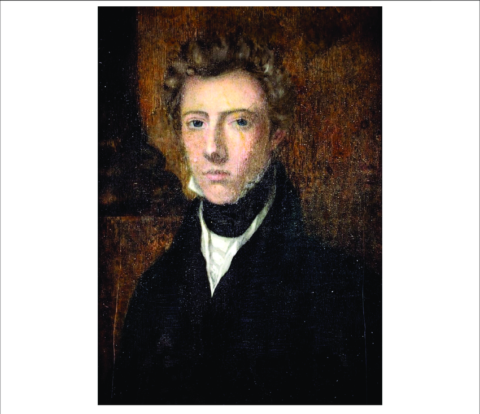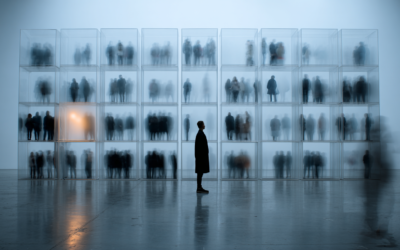In 1865, on a dreary London morning, a nurse named Sophia Bishop made a discovery that would ripple through history. As she prepared the body of Dr. James Barry, Inspector General of Hospitals and one of the British Army’s most distinguished medical officers, she found something impossible: Dr. Barry was anatomically female. More shocking still were the stretch marks that suggested a pregnancy—a secret buried beneath five decades of carefully maintained fiction.
This revelation should have destroyed Barry’s legacy. Instead, it transformed it into something far more profound: a master class in how power operates, how identity is constructed, and how the art of becoming someone else can sometimes be the only path to becoming yourself.
The Anatomy of Power
When we think about power, we usually imagine it flowing from the top down—from institutions to individuals, from the powerful to the powerless. But James Barry’s story reveals a more subtle truth: power often resides in the spaces between official structures, in the gaps where reality doesn’t quite match our expectations.
Consider this: For fifty years, Barry operated at the highest levels of the British military—an institution notorious for its rigid hierarchies and traditional values. He performed one of the first successful Caesarean sections in Africa, reformed military hospitals across the empire, and regularly dined with governors and generals. All while carrying a secret that could have ended everything in an instant.
How? Because power isn’t just about authority—it’s about perception. Barry understood something that modern social media influencers and corporate leaders are still learning: if you control how others see you, you control how they interact with you. His short temper and quick tongue weren’t character flaws; they were tactical choices. Every argument, every duel challenge, every public confrontation served to reinforce his carefully constructed identity. Who would dare question the masculinity of someone so aggressively, stereotypically male?
The Performance of Self
There’s a delicious irony here that would have delighted Judith Butler, the philosopher who argued that all gender is performance. Barry’s performance of masculinity was so convincing precisely because it was conscious. While his male colleagues unconsciously enacted their gender roles, Barry studied and reproduced them with the precision of a method actor preparing for the role of their life.
But this wasn’t just about gender. Barry’s story reveals a deeper truth about identity itself: we all perform ourselves. The careful calibration of voice, gesture, and behavior that Barry used to navigate military life isn’t so different from how we modulate our behavior in different social contexts. The only difference is that Barry was conscious of the performance.
 Medicine as Metamorphosis
Medicine as Metamorphosis
Here’s where things get interesting: Barry’s chosen field of medicine itself is about transformation. Medical practice in the 19th century was undergoing its own metamorphosis, shifting from medieval humoral theory to modern scientific practice. Barry’s innovations—his insistence on sanitation, his advocacy for marginalized patients, his groundbreaking surgical techniques—were all about transforming both bodies and institutions.
Is it mere coincidence that someone who had engineered their own radical transformation would be drawn to a profession centered on transforming others? Or that someone who lived between social categories would be particularly attuned to those whom society had cast aside?
The Pregnancy Paradox
The possibility that Barry had been pregnant before assuming his male identity adds another layer of complexity to this story. If true, it suggests that his transformation wasn’t just about professional ambition—it was about survival. In early 19th century Ireland, an unmarried pregnant woman faced social death. By becoming James Barry, Margaret Bulkley might have been ensuring not just her own future, but her child’s as well.
This connects to a pattern we see repeatedly in history: transformation as a response to impossible circumstances. Like the Jewish scholars who converted to Christianity during the Spanish Inquisition while secretly maintaining their faith, or the enslaved people who learned to “pass” as free in antebellum America, Barry’s transformation was both a surrender to reality and a defiance of it.
The Science of Becoming
Barry’s story feels remarkably modern, echoing contemporary discussions about gender identity, professional access, and institutional power. But it also connects to something more universal: the human capacity for self-reinvention.
Recent neuroscience suggests that our identities are more fluid than we once thought. The brain’s neuroplasticity—its ability to form new neural pathways and adapt to new circumstances—means that we are constantly becoming new versions of ourselves. Barry’s transformation wasn’t just social; it likely rewired his brain, creating new neural patterns that reinforced his adopted identity.
The Price of Invisibility
But there’s a dark side to this story of successful transformation. Barry lived in constant fear of discovery, maintaining few close relationships and keeping even his supporters at arm’s length. His famous temper and difficult personality might have been as much about maintaining distance as maintaining authority.
This too reveals a pattern: the toll of invisible identities. Like Alan Turing, forced to hide his sexuality while helping to win World War II, or countless women throughout history who published under male pseudonyms, Barry’s public success required private isolation.
The Legacy of Liminality
James Barry died as he lived—between categories. Was he a woman who lived as a man, or a transgender man born before the language existed to describe that identity? A medical pioneer who happened to be born female, or a female pioneer who used male identity as a tool for advancement?
Perhaps these questions miss the point. Barry’s genius lay in recognizing that categories themselves are human constructions—useful fictions that we can sometimes transcend through careful performance and calculated risk.
Modern Metamorphoses
Today, we’re seeing an explosion of interest in identity transformation. From gender transitions to digital avatars, from professional reinvention to personal rebranding, humans are exploring the malleability of identity in unprecedented ways.
Barry’s story offers both inspiration and warning for these modern metamorphoses. It demonstrates the extraordinary possibilities that open up when we refuse to be limited by the categories we’re born into. But it also reminds us of the costs of maintaining a divided life, of the emotional toll of constant performance.
The Art of Becoming
In the end, James Barry’s greatest achievement wasn’t his medical innovations or his military reforms. It was his demonstration that identity itself is an art form—one that requires equal parts courage, calculation, and commitment.
His life poses a question that feels increasingly relevant: In a world where traditional categories are breaking down, what becomes possible when we treat identity not as a fixed inheritance but as a canvas for self-creation?
The answer, if Barry’s legacy is any indication, is both thrilling and terrifying: anything at all.
A Note on Historical Interpretation
History is rarely neat, and our modern frameworks don’t always map cleanly onto past lives. In interpreting Barry’s story as one of strategic performance rather than gender identity, I’m following a trail of evidence that suggests a brilliant mind engineering an escape from social constraints. The transformation occurred within a specific circle of radical thinkers, coinciding precisely with the opportunity to study medicine. Like a chess player seeing seven moves ahead, Barry seems to have recognized that becoming male wasn’t just about accessing education—it was about securing a future that would have been impossible otherwise.
The pregnancy evidence, if accurate, adds another dimension that feels less like identity expression and more like desperate pragmatism. In a world where an unmarried mother faced social death, becoming James Barry might have been less about becoming male and more about becoming free. It’s reminiscent of those moments in history when people have changed names, religions, or social classes not out of internal conviction but out of a clear-eyed recognition of what survival requires.
This interpretation doesn’t diminish Barry’s courage or achievements—if anything, it highlights them. There’s something extraordinarily human about looking at an unjust system and deciding to beat it at its own game, about recognizing that sometimes the only way forward is to rewrite the rules of who you’re allowed to be.



